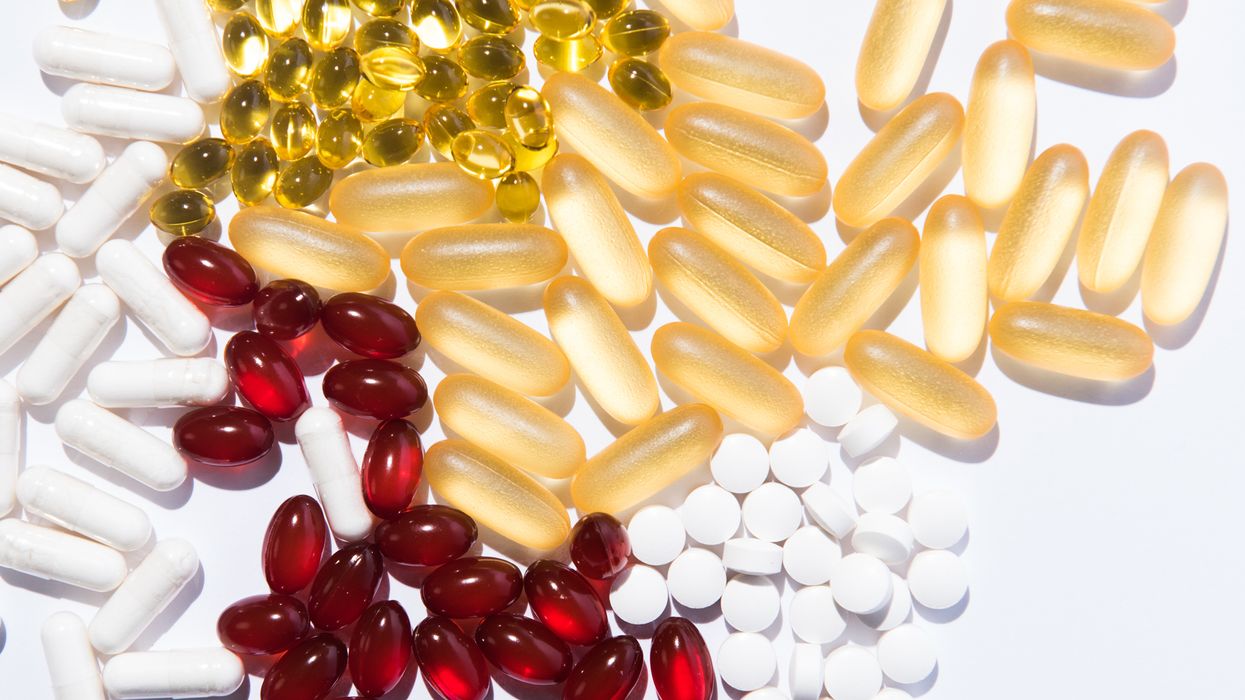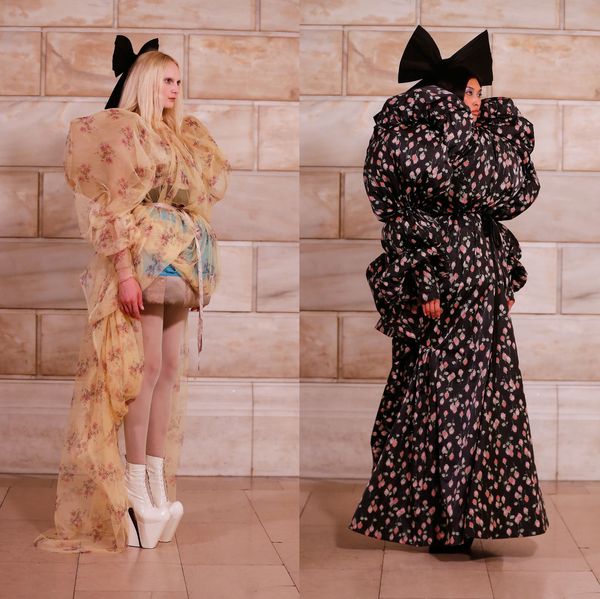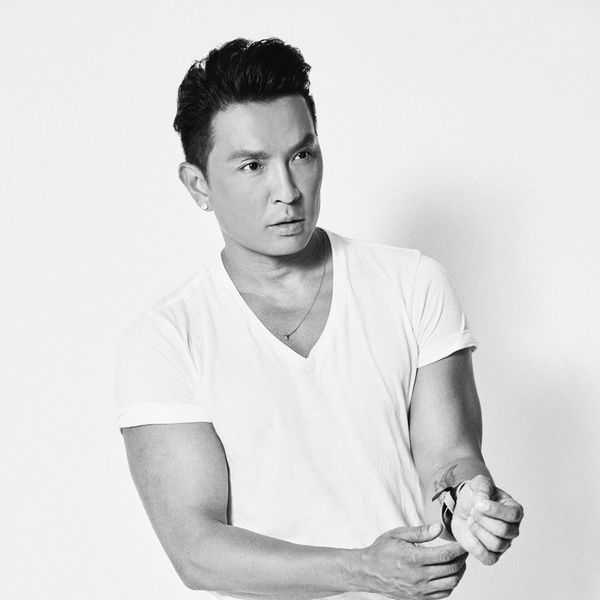The Psychology of Supplements—Why We Take Them But May Not Need Them
The aesthetically pleasing packaging, the promise of a healthier lifestyle, the ease of use—but they almost never live up to their promise.

Over the last four years, self-care has gone from a nebulous lifestyle idea to a social media hashtag to a massive $450 billion industry. Certain self-care items—CBD bath soaks, jade facial rollers, loose rose quartz—have jumped into the collective consciousness as The One Thing that can help you sleep better, wake up better, look better, exercise better, and generally improve every facet of your health and beauty routine.
The supplement industry, which isn’t anything new, has also enjoyed an Instagram-fueled explosion: Brands like Ritual, Care/Of, and HUM Nutrition have overthrown veterans like Nature Made and Nature’s Bounty as the photogenic, tell-all-your-millennial-friends brands du jour. And while they may work—most nutritionists and doctors we spoke with confirmed that a supplement is effective when a person is deficient in a vitamin or mineral (although many haven’t bothered to run the tests to find out)—the USA still ends up spending more than $35 billion per year on supplements. That’s a hefty sum for a health product that lacks a single government-backed seal of approval—or any actual need.
Still, we faithfully purchase, document, and (probably) take them, often without consulting a doctor. According to a study by the National Institute of Health, less than a quarter of adults taking supplements were recommended by a physician or health care provider to do so—and even so, the FDA doesn’t allow any brand the ability to market a supplement as something that can treat, prevent, or cure any disease. So why do we do it? The answer is two-fold, says Dr. Richard Contrada, a professor of social psychology at Rutgers University. First, he references the colloquial idea of a cost-benefit analysis, a familiar concept when it comes to decision making. Scientists call this a “value-expectancy calculation,” he says, and it might be more passive than you’d think.
“We engage in [a value-expectancy calculation] on many occasions, such as when we plan a vacation, work on a household budget, or arrange an event like a dinner party. This involves assigning probabilities to the different possible outcomes of one’s various behavioral options and attaching to those outcomes the value or utility that would be associated with them. Another word used for this kind of mental activity is controlled thinking. But the mind often works in a different manner: one that’s less effortful and not so deep or deliberate. This is sometimes referred to as automatic mental activity. This is where a person might make decisions based on emotions or on peripheral information or salient cues that may not deserve very much consideration.”
This could be the reason we see a friend post a photo of an aesthetically pleasing product and feel compelled to purchase it before researching it—or why, after hearing anecdotal evidence that a friend saw her hair grow three inches in two months, we click to buy without bothering to find out if we’re even lacking in B vitamins in the first place. It could also explain why many vitamins, despite the buyer’s best intentions, sit in cabinets unused after the first few days or weeks.
According to another study conducted in 2003 in the Journal of Nutrition, researchers applied the Theory of Planned Behavior—a mechanism that assesses factors that influence behavioral motivation and action—to conclude that any combination of social, psychological, educational, and economic factors can affect a person’s decision to take a supplement.
Sara Kirk, one of the researchers leading the study, tells Coveteur: “Supplement users seemed to take [them] as something akin to an insurance policy, believing more strongly that taking dietary supplements would stop them getting ill and help them to be healthy. People may just think ‘Well, why not take them?’ This then takes us into the realm of marketing and persuasion tactics to encourage people to use them.” Kirk adds that a supplement can feel like a shortcut to a healthy lifestyle with little effort, “rather than addressing the root cause of poor nutrition.”
The same 2003 study concluded that media like “books and magazines” had a heavy influence on a woman’s decision to take supplements, specifically. Seventeen years later, the media landscape has transformed, mostly thanks to social platforms, from less of a top-down hierarchy into a more peer-to-peer paradigm. “When we’re encouraged to do something by someone or some group for which we have respect and positive feelings, all things equal, we may be inclined to accept the message and carry out the suggestion,” Dr. Contrada says. We all know how persuasive social media can be in multiple facets of our lives.
Less obvious, perhaps, is the way we’re marketed to: “The use of depictions of nature may also influence decisions,” Dr. Contrada continues. “This is a form of peripheral persuasion, in which positive associations are created such that we feel good about the product,” he says, recalling cigarette ads of years past. “Here, the positive imagery usually involved young, apparently healthy people having fun, outdoors in nature, the idea being that this positive association might be more influential than warnings printed in small font about the hazards of cigarette smoking.” This could be the reason why so many supplement brands—millennial and otherwise—have logos cut with leaves, trees, birds, fresh fruit, and other emblems that signal an active, healthy lifestyle.
It may also be because those who are more likely to buy supplements think those products “fit” with their existing lifestyle, even if their physician hasn’t recommended they take one. “I’ve found that patients who are proactively adding supplements to their diet are also being proactive about their health and well-being in other ways,” says Dr. Wayne Jonas, an integrative health expert and physician. Generally speaking, they’re already getting regular exercise, eating mindfully, sleeping well, and “engaging in self-care,” he says, noting that “the concept of a ‘deficiency’ only applies to some supplements, like vitamin A, vitamin D, calcium, and zinc. A range of products that fall outside of this category of supplements include herbs, probiotics, and melatonin, among others. No one has an herb deficiency.”
Kirk calls this the “inverse supplement hypothesis,” in that the people most likely to use dietary supplements may be those who least need them.
While there’s stacking evidence that targeted supplements like probiotics can often improve gut health and sleep quality respectively, either way, Shelley Gawith, a functional nutrition specialist based in New Zealand, recommends getting a simple test done with your general practitioner to determine if and what you might actually need.
“We can get medical labs for basic nutrients, as well as for digestion, hormones, adrenals,” Gawith says. “Most clients I see in the clinic are low in hydrochloric acid, so that’s an extremely beneficial [supplement]. Most vegan clients are iron and B12 deficient. Most people are low in vitamin D. A lot of people need gut health support, so supplements to support the gut lining, and most people are stressed, so a good-quality supplement to calm their central nervous system is often really effective.”
So what’s the one thing all the experts can agree on for supplement usage? Gawith says it best: “If your body doesn’t need it, then it’s going to make no difference at all.”
[Editor’s Note: As ever, we are not doctors or medical know-it-alls. And everybody is different, so make sure to check with a doctor before trying anything new.]
Want more stories like this?
Black Girl Wellness: A New Cultural Renaissance
Rediscovering My Orgasm: What It’s Like to Have Sex on Anti-depressants
Perfume as Self-Care? Aromacology Is the Holistic Wellness Trend You Need to Try




